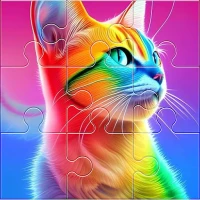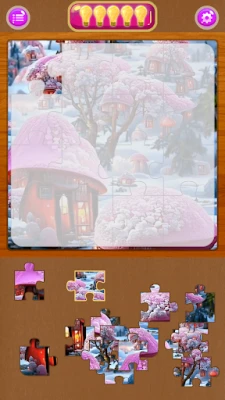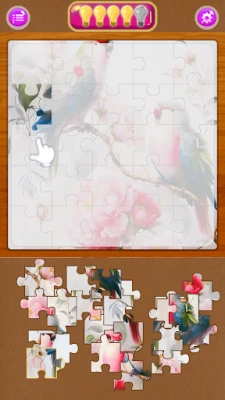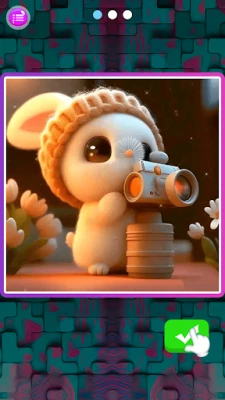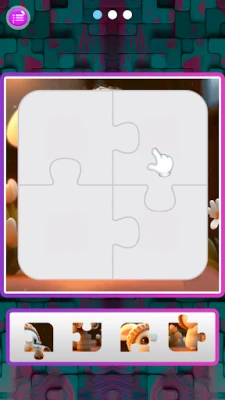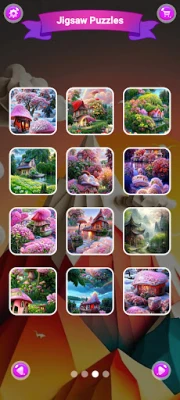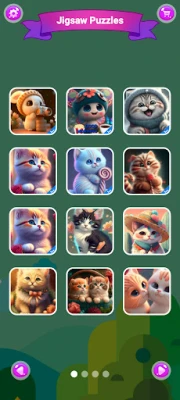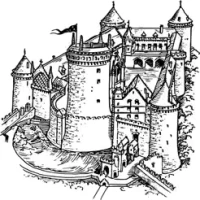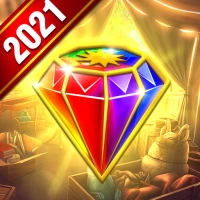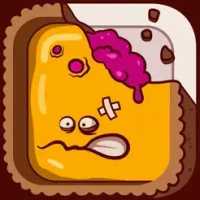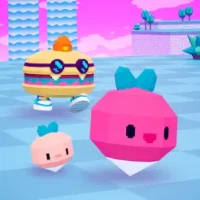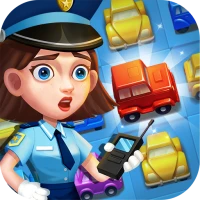
Latest Version
Version
1.2.6
1.2.6
Update
January 11, 2025
January 11, 2025
Developer
dingguo.cc
dingguo.cc
Categories
Games
Games
Platforms
Android
Android
Downloads
0
0
License
Free
Free
Package Name
com.puzzle.kids.free.puzzle
com.puzzle.kids.free.puzzle
Report
Report a Problem
Report a Problem
More About Jigsaw Puzzles
Everyone is a genius (even though they eat old Cheerios off the floor). Give your a free puzzle, watch you mind work some magic and you’ll be certain a Nobel Prize is next.
All ages can gain benefits from playing with puzzles game. These brain-building activities help develop cognitive and fine-motor skills, foster cooperative play and spur problem-solving prowess. Not only are puzzles a perfect way to spend some quality time together, but feel proud of themselves for completing one. Better yet, they’re an interactive way to teach colors, letters, numbers, shapes, animals and beyond.
There are different types of puzzles for different ages. One-year-olds have a blast with large, simple wooden puzzles where shapes easily fit into each cutout. As you grow, move onto more advanced setups with pieces of varying sizes and configurations.
You may put more pieces in mouth than in designated places at first, but a little practice goes a long way in boosting hand-eye coordination. Be patient and resist the urge to help too much. Part of the fun is letting little ones figure things out for themselves. When you childhood, it’s all about tactile and sensory experiences as well as understanding size differentiation and object recognition.
There are different types of puzzles for different ages. One-year-olds have a blast with large, simple wooden puzzles where shapes easily fit into each cutout. As you grow, move onto more advanced setups with pieces of varying sizes and configurations.
You may put more pieces in mouth than in designated places at first, but a little practice goes a long way in boosting hand-eye coordination. Be patient and resist the urge to help too much. Part of the fun is letting little ones figure things out for themselves. When you childhood, it’s all about tactile and sensory experiences as well as understanding size differentiation and object recognition.
Rate the App
Add Comment & Review
User Reviews
Based on 0 reviews
No reviews added yet.
Comments will not be approved to be posted if they are SPAM, abusive, off-topic, use profanity, contain a personal attack, or promote hate of any kind.
More »










Popular Apps
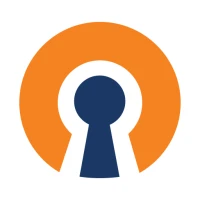
OpenVPN Connect – OpenVPN AppOpenVPN

Private Internet Access VPNPIA Private Internet Access, Inc

Ocean - Secure VPN BrowserOZZMO

Modern Tanks: War Tank GamesXDEVS LTD

ExpressVPN: VPN Fast & SecureExpressVPN

Asphalt XtremeNetflix, Inc.

Surfshark: Secure VPN serviceSurfshark B.V.

VPN - Proxy MasterVPN & Proxy Master

Merge Survival : WastelandStickyHands Inc.

Dawn of Zombies: Survival GameRoyal Ark
More »










Editor's Choice

Grim Soul: Dark Survival RPGBrickworks Games Ltd

Craft of Survival - Gladiators101XP LIMITED

Last Shelter: SurvivalLong Tech Network Limited

Dawn of Zombies: Survival GameRoyal Ark

Merge Survival : WastelandStickyHands Inc.

AoD Vikings: Valhalla GameRoboBot Studio

Viking Clan: RagnarokKano Games

Vikings: War of ClansPlarium LLC

Asphalt 9: LegendsGameloft SE

Modern Tanks: War Tank GamesXDEVS LTD
